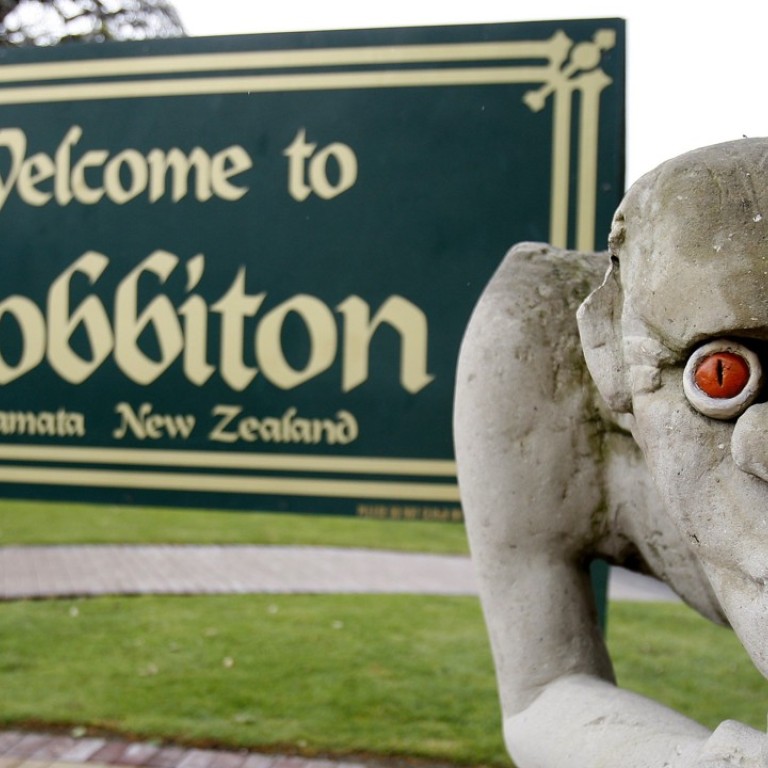
New Zealand customs officers now have the power to demand passwords to digital devices
Digital-savvy Chinese tourists have flocked to New Zealand to see sights that include a 1,250 acre sheep farm that became Hobbiton, the home of the hobbits in JRR Tolkien’s fantasy land Middle Earth
When you think of countries with aggressive border security, the bucolic land which provided the backdrop for the Peter Jackson-directed Lord of the Rings trilogy may not come to mind.
But this week the New Zealand Customs Service received new powers at the country's borders, including the ability to demand passwords from travellers to search their electronic devices if they are suspected of committing a customs offence, in what amounts to a digital strip-search.
The legislation states that a customs officer now has the power to make a “full search of a stored value instrument”, including power to “require a user of the instrument to provide access information and other information or help that is reasonable and necessary to allow a person to access the instrument”.
The news may come as a shock to digital-savvy Chinese tourists on their way to New Zealand during China’s week long National Day public holiday, known popularly as “Golden Week”.
In recent years tourists have flocked to New Zealand to see sights that include a 1,250 acre working sheep farm on North Island that became Hobbiton, the home of the hobbits in JRR Tolkien's fantasy land, Middle Earth. New Zealand’s Ministry for Business, Innovation and Employment said in May that China is poised to become the nation's dominant tourism market in the next five years, projecting visitors from the country will spend about NZ$4.3 billion a year, accounting for just over half the total spend.
Rules and regulations around the ability of customs and border officials to access digital devices varies from country to country. In the US, which has had to tighten security significantly since the 9/11 terrorist attacks, US border agents can inspect data located on physical devices such as phones and laptops, but cannot access information stored remotely or on the cloud. Under rules which were updated at the beginning of the year, travellers can be asked to provide their devices’ passwords to US border agents, but the passwords must be deleted or destroyed immediately following the search.
Under the new New Zealand customs powers, access to information is defined in the legislation as including codes, passwords, and encryption keys, and any related information that enables access to an electronic device. Customs now also has the right to copy, in addition to review, the data stored on the device, and can also confiscate it to conduct a further search – but officials need to have a reasonable suspicion of wrongdoing.
However, like in the US there is no power for the New Zealand customs officers to search material that is accessible from the device, but not stored in the device – such as the cloud – and they must return the device to the owner undamaged once the search is complete, unless “evidence of relevant offending is found”.
“The device may be accessed, searched, reviewed, or evaluated either manually or by using a technology aid that has completed a privacy impact assessment in consultation with the Privacy Commissioner,” the legislation explains. “If a person is convicted of an offence under subsection (8), a court may order the device to be condemned to the Crown, destroyed, or returned subject to any conditions that the court thinks fit.”
Government figures in May showed the number of Chinese arrivals in New Zealand rose 11 per cent to almost 445,000 in the year ended April 30, accelerating from an annual increase of just 2.6 per cent a year earlier. Chinese visitor numbers have climbed at an average annual rate of 18 per cent since April 2012.

